WildLeaks
Air Date: Week of July 4, 2014
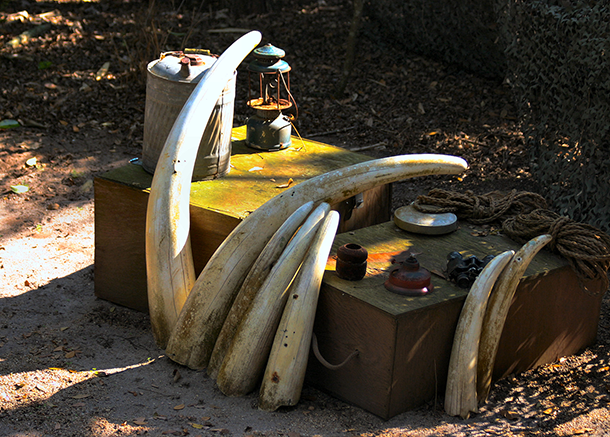
Poachers’ camp with elephant tusk bounty (Photo: Bigstockphoto)
WildLeaks, loosely modelled on WikiLeaks, is an organization and unique online platform to collect anonymous tips about wildlife poaching, trade and illegal deforestation. WildLeaks Founder, Andrea Crosta, tells host Steve Curwood how they use this information to fight wildlife crime and prosecute the people involved.
Transcript
CURWOOD: Well, one problem with deterring poaching is a lack of reliable information, but a new watchdog is on the beat—called WildLeaks. It’s a WikiLeaks-style of website, created by a group called the Elephant Action League, and it is the first secure online platform that allows whistleblowers and the public to post information anonymously about illegal poaching.
Andrea Crosta is the Executive Director of the Elephant Action League and Founder of WildLeaks. He joins us today. Welcome to Living on Earth.
CROSTA: My pleasure.
CURWOOD: What exactly is WildLeaks?
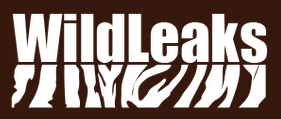
WildLeaks Logo (Photo: WildLeaks.org)
CROSTA: WildLeaks is a platform, but also a methodology and a group of people focused on the collection of confidential information about wildlife and forest crimes, and to facilitate the identification, arrest and prosecution of anybody—criminals, traffickers, businessmen, corrupt government officials--behind wildlife crime.
CURWOOD: How do you plan to do this?
CROSTA: We have a network of people—organizations, professionals, experts—around the world that are really helping us. And of course we are developing also relations with law enforcement because at the end of the day, if you want these people, you know, behind bars you need the judicial system that prosecutes these people. Or you decide to go with the media, and so you basically shame them; that’s the second option we have.
CURWOOD: So as far as you can tell, how big is wildlife crime and the illegal forest removal?
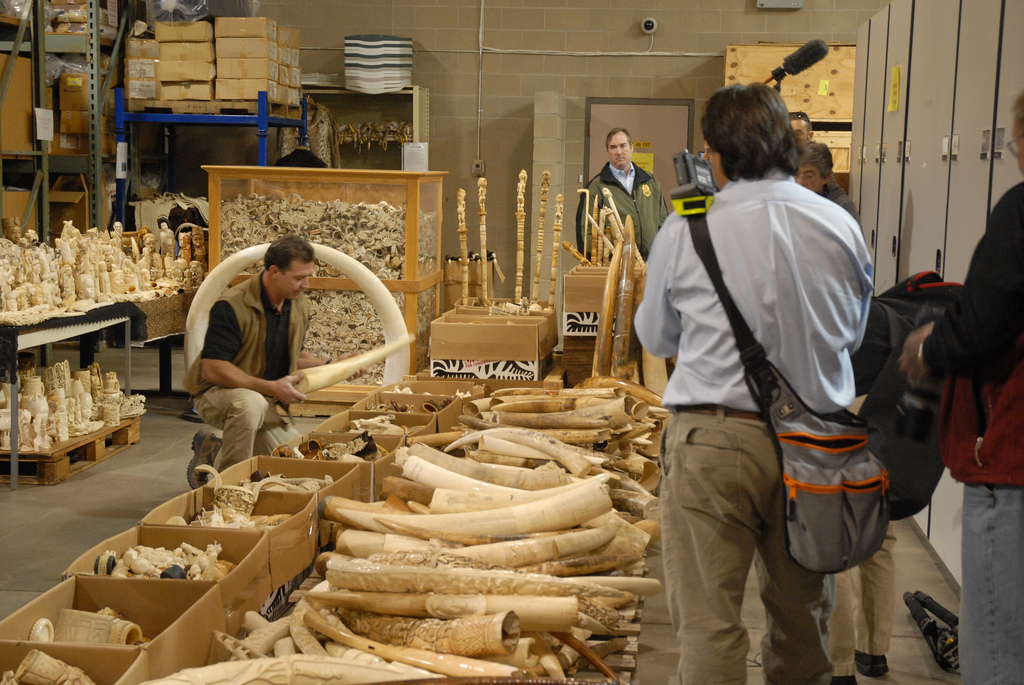
Seized ivory slated for destruction (Photo: Gavin Shire/ USFWS)
CROSTA: Well, it depends. If you put wildlife and forestry crime together, we’re talking about billions of dollars of an illegal market. It’s one of the largest illegal markets on the planet after drugs and weapons and human trafficking. At the same time, unlike, for example drugs, it’s a very low-risk dirty business because if they get you with a load of drugs—of cocaine, of heroin—in most of the countries you go to jail for a long time. In some other countries, you also get executed. If they find you with a rhino horn, and a rhino horn can fetch up to $250,000 dollars for just up to one horn in Asia, well, in most countries, you get a slap on the wrist. So you can imagine it’s the perfect business for criminals that exploit other people to do the dirty job.
CURWOOD: Now, what's the inspiration for WildLeaks?
CROSTA: You know, I’ve been dealing with conservation for more than twenty years, but also I've been involved as a security consultant to law enforcement. And I realized that there's a lot of people out there with a lot of information about wildlife crime, they just don't know what to do with this information. So I wanted to create something to fill the gap between people with information and people that can do something with information.
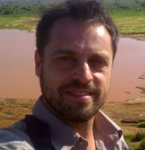
Andrea Crosta, Founder and Project Leader of WildLeaks (Photo: WildLeaks.org)
CURWOOD: So let's say that I observed somebody poaching an elephant someplace. How would I get to WildLeaks?
CROSTA: So WildLeaks has an online platform, WildLeaks.org. Through this platform, you access to a very secure part of our website, and over there you can submit in total anonymity, not just your message, but you can also upload all kinds of files: videos, pictures, documents, PDFs, whatever you have. You can also write to us through our contact form, which is encrypted. And WildLeaks is not just a passive receiver; we have teams in the field, so people contact WildLeaks also personally. So there are people that have information, so you meet them. So in this way you slowly build a relation with potential whistleblowers, potential sources, in the hope that they would provide critical information which we can seriously act on the important people behind wildlife crime.
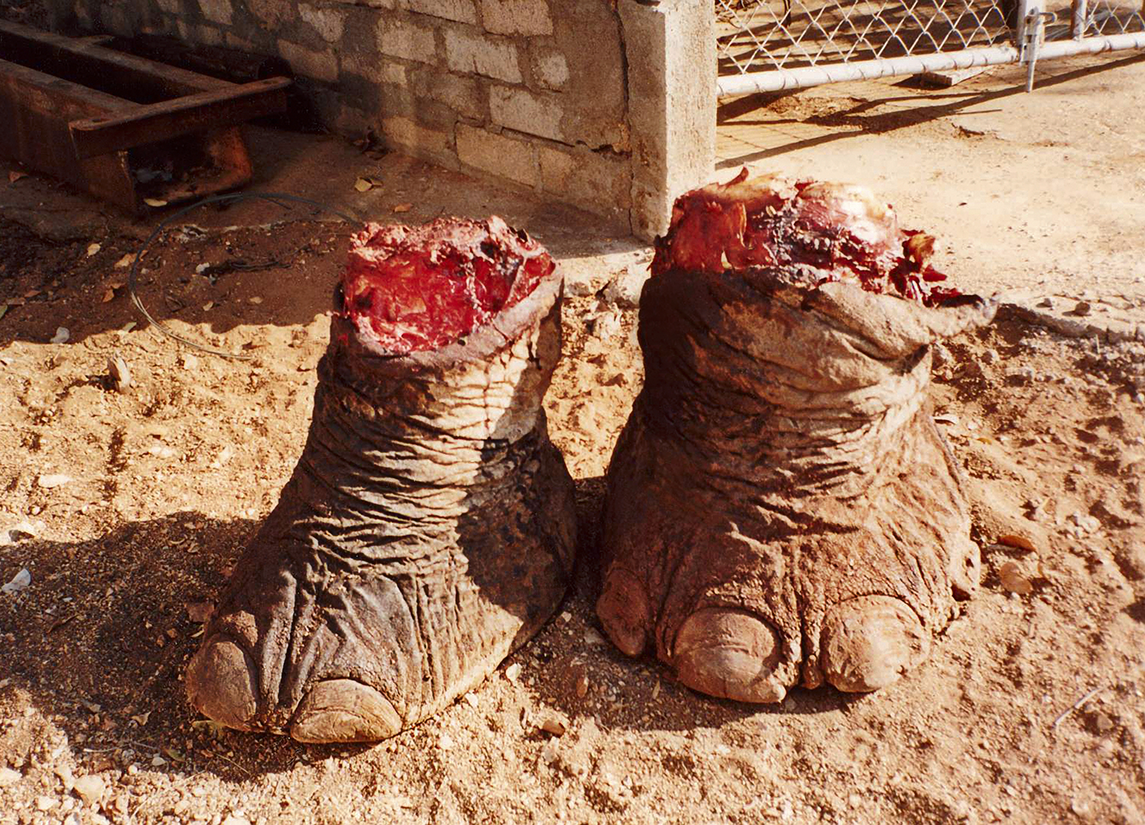
Poachers sell elephant legs for furniture (Photo: Bigstockphoto)
CURWOOD: So there’s billions of dollars at stake in illegal trade in wildlife, which means your organization’s going to be a target for people who do that. How you guard against them hacking your website to a) maybe find out who's giving information and b) try to put you out of business?
CROSTA: Right. Well, first of all, we’re not the only ones who fight this battle; we are many. We, of course, take a lot of precautions to protect our data, for example, the server of WildLeaks is a very secure server. We don’t have permanent personnel in target countries like Africa or Asia because the moment you have people there, they become a liability. So, these are general precautions that we take in order to protect our data and our people. Of course, there is always the risk of a cyberattack—we’ve actually been attacked a couple of days ago—but we are very well protected. The maximum they can get is to have our website down for a few hours, and then we’re up again.
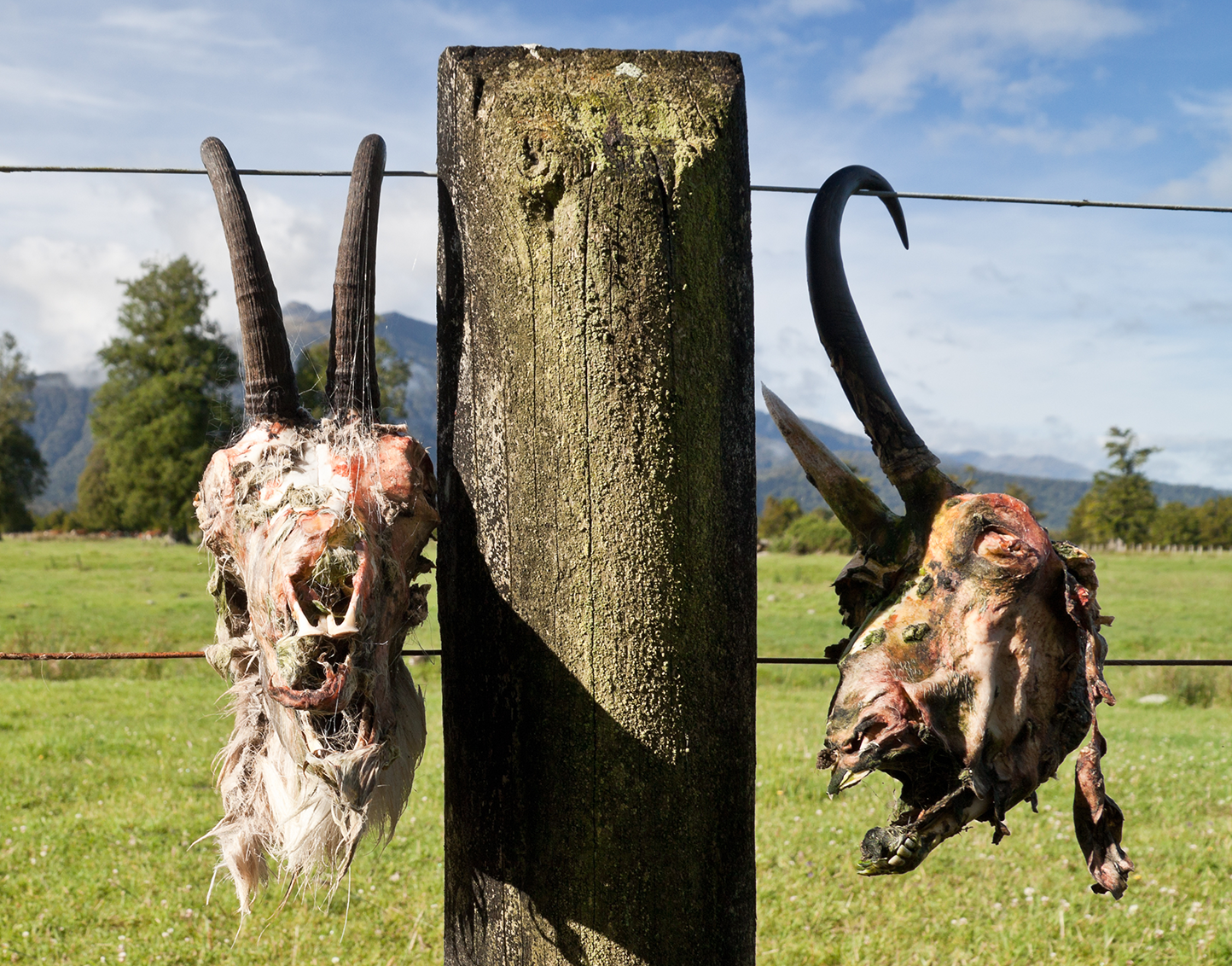
Animal heads left after poaching (Photo: Bigstockphoto)
CURWOOD: What kind of tips have you received so far; I gather you began operating in February?
CROSTA: Exactly, we are just four months old. Actually we got dozens and dozens of tips and leaks and different kinds of information that were accessed. All-in-all we came up with twenty-four leaks that our assessment group assessed as good and reliable. We are about to investigate on three of them already. And the topics that we receive varies a lot, but we got quite a bit about ivory trafficking, not just in Africa but also in Asia, which is the destination of ivory. And we also got information about the illegal logging in Central Africa, illegal logging in Russia, illegal fishing in the States, poaching in the United States, trafficking of chimps in Liberia. So we are very happy with the reaction of the public. It looks like we kind of fill a gap.
CURWOOD: Andrea Crosta is the Project Leader and Founder of WildLeaks and Executive Director of its partner organization, the Elephant Action League. Thanks so much for taking the time with me today.
CROSTA: My pleasure. Thank you for having me.
Links
Elephant Action League and WildLeaks partner to curtail wildlife crime
Living on Earth wants to hear from you!
Living on Earth
62 Calef Highway, Suite 212
Lee, NH 03861
Telephone: 617-287-4121
E-mail: comments@loe.org
Newsletter [Click here]
Donate to Living on Earth!
Living on Earth is an independent media program and relies entirely on contributions from listeners and institutions supporting public service. Please donate now to preserve an independent environmental voice.
NewsletterLiving on Earth offers a weekly delivery of the show's rundown to your mailbox. Sign up for our newsletter today!
 Sailors For The Sea: Be the change you want to sea.
Sailors For The Sea: Be the change you want to sea.
 The Grantham Foundation for the Protection of the Environment: Committed to protecting and improving the health of the global environment.
The Grantham Foundation for the Protection of the Environment: Committed to protecting and improving the health of the global environment.
 Contribute to Living on Earth and receive, as our gift to you, an archival print of one of Mark Seth Lender's extraordinary wildlife photographs. Follow the link to see Mark's current collection of photographs.
Contribute to Living on Earth and receive, as our gift to you, an archival print of one of Mark Seth Lender's extraordinary wildlife photographs. Follow the link to see Mark's current collection of photographs.
 Buy a signed copy of Mark Seth Lender's book Smeagull the Seagull & support Living on Earth
Buy a signed copy of Mark Seth Lender's book Smeagull the Seagull & support Living on Earth

